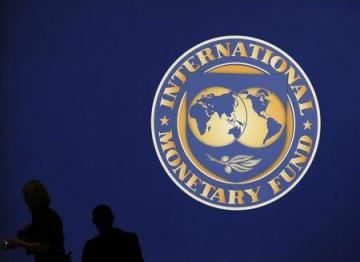IMF urges Sudan to allow more exchange rate flexibility
May 10, 2014 (KHARTOUM) – The International Monetary Fund (IMF) on Friday expressed concern over the growing disparity between the official exchange of the Sudanese pound and the black market rate and called on Khartoum to address this issue.
 In recent weeks, the Sudanese pound reached record lows against the US dollar on the black market, which is seen as a vital indicator to gauge the state of the economy.
In recent weeks, the Sudanese pound reached record lows against the US dollar on the black market, which is seen as a vital indicator to gauge the state of the economy.
One US dollar trades for more than 9.3 pounds compared to an official rate of 5.5-59.
“Against this background, the mission noted, however, the widening gap between the official and parallel market exchange rates. This gap is the result of a range of factors, including uncertainty about the revenues from oil transit as the conflict in South Sudan continues, domestic political uncertainty in the run-up to next year’s presidential elections, and imbalances in the foreign exchange market,” the IMF said in a statement at the conclusion of a visit by its mission to Khartoum during April 29-May 8, 2014 to conduct the first review under Sudan’s 2014 Staff-Monitored Program (SMP).
The IMF announced last March that its managing director Christine Lagarde had extended its Staff-Monitored Program (SMP) for Sudan for the rest of 2014.
The SMP is an informal agreement between country authorities and IMF to monitor the implementation of the authorities’ economic program. SMPs do not entail financial assistance or endorsement by the IMF executive board.
“The mission urged the authorities to follow through on their intention to address these imbalances through greater exchange rate flexibility, which would help restore competitiveness and support exports and growth, avoid the loss of international reserves, and provide a shock absorber for the economy”.
Sudan has been struggling to narrow the gap between the official and black market rates of foreign currency exchange which has been widening since the country lost its main source of hard currency revenues due to the secession of the oil-rich south in July 2011.
But because of the low Forex reserves held by the Central Bank of Sudan (CBoS), its ability to intervene to support its currency remains very limited.
The CBoS refuses to disclose the amount of Forex reserves it holds but a report released by the IMF last year shows it to have $1.6 billion in 2013 which covers only 2 months of imports compared to $1.7 billion in 2012.
The government also quietly devalued its currency last September bringing it down from 4.4 pound to 5.7 for one US dollar.
Because Sudan does not produce enough food to feed its population, it uses a significant portion of its Forex for food imports.
Businesses and individuals say they are unable to buy dollars from official venues and therefore resort to the black market.
The Central Bank also does not allow foreign firms in Sudan to repatriate its profits abroad to prevent Forex bleeding.
IMPROVED INDICATORS
The IMF disclosed that preliminary economic indicators in Sudan show an improvement relative to last year.
“Preliminary data suggest that economic performance in the first quarter of 2014 is improving in line with projections under the SMP. Twelve-month inflation fell to 35.7 percent at end-March, from 41.9 percent at end-December 2013. Reserve money and broad money grew by 3.2 percent and 6.7 percent, respectively. The overall fiscal deficit is estimated to have reached 0.2 percent of GDP compared with 0.5 percent of GDP in the same period of 2013″
“Most of the end-March targets under the SMP were met. The authorities have also made good progress toward meeting their structural benchmarks. The mission welcomes the authorities’ commitment toward meeting the objectives of their economic program. In this regard, it welcomes the establishment of an Inter-Ministerial Committee to monitor implementation of policies and the coordination of fiscal and monetary policies”.
The IMF current;y projects Sudan’s economic to reach 2.7% in 2014 and jump to 4.6% in 2015.
The Fund also urged Sudan to work diligently on seeking debt relief from creditors along with South Sudan and the African Union.
(ST)
